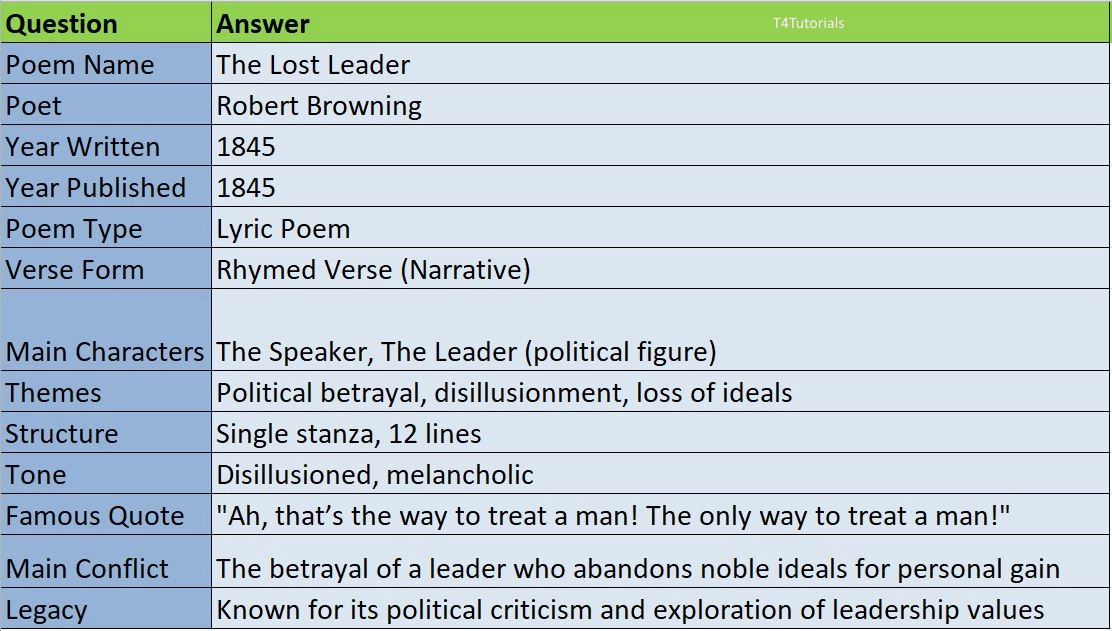Summary:
The Lost Leader is a poem by Robert Browning that expresses the poet’s disillusionment with a prominent leader who has fallen from grace. The poem addresses the betrayal of idealism, loyalty, and integrity, reflecting Browning’s frustration with the political figures of his time. In this case, the speaker is disillusioned by the actions of a leader who once held noble values but has abandoned them for personal gain or compromise. The speaker laments the loss of the leader’s original ideals and reflects on the consequences of this loss, not just for the leader but for those who once followed him. The poem explores themes of betrayal, integrity, and the loss of trust in leadership.
10
Score: 0
Attempted: 0/10
Subscribe
| Question | Answer |
| Poem Name | The Lost Leader |
| Poet | Robert Browning |
| Year Written | 1845 |
| Year Published | 1845 |
| Poem Type | Lyric Poem |
| Verse Form | Rhymed Verse (Narrative) |
| Main Characters | The Speaker, The Leader (political figure) |
| Themes | Political betrayal, disillusionment, loss of ideals |
| Structure | Single stanza, 12 lines |
| Tone | Disillusioned, melancholic |
| Famous Quote | “Ah, that’s the way to treat a man! The only way to treat a man!” |
| Main Conflict | The betrayal of a leader who abandons noble ideals for personal gain |
| Legacy | Known for its political criticism and exploration of leadership values |